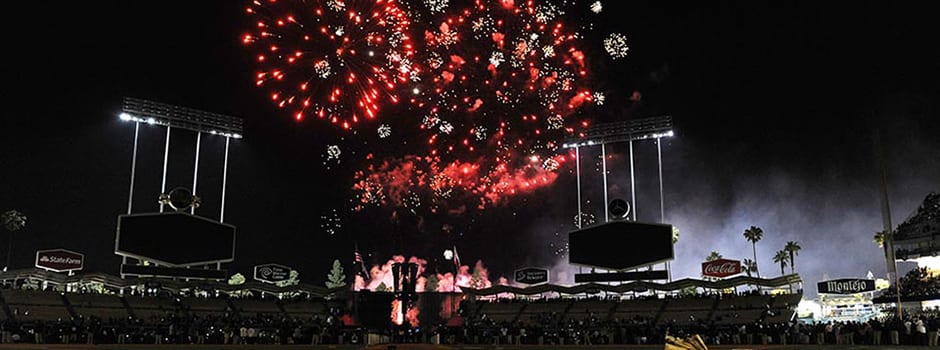Legislation proposed in California that directly targets the Ticketmaster “monopoly” of live entertainment ticketing, passed its first hurdle by a unanimous vote this week. SB 829 cleared the Senate Business, Professions, and Economic Development committee by an 11-0 vote. It will now be considered by the California state senate’s Judiciary Committee, with a hearing scheduled for April 25.
“I am pro-business, but I am not pro-monopoly and Californians are getting ripped off for simply wanting to see their favorite artist, act or sports team,” said Senator Scott Wilk (R-Santa Clarita), who authored the bill. “This bill is a first step in protecting consumers from the monopoly that has had a stranglehold on ticket prices for over a decade.”
SB 829 would outlaw exclusivity clauses in contracts between a primary ticket seller and an entertainment venue in the state of California. Such clauses have been a huge source of power for Live Nation Entertainment and its Ticketmaster subsidiary, supercharging the world’s largest promoter and its ticketing wing through the long-term elimination of competition from other ticketing companies. While Live Nation and Ticketmaster have not officially come out in opposition, organizations that they partner with including Broadway San Diego, Hollywood Pantages, and Nederlander Concerts have voiced their opposition to the bill.
“We believe the bill is built on the false premise that major league sports teams and venue owners and operators are somehow compelled to enter into exclusive contracts with ticketing companies,” writes the opposition to the bill. “In fact, our organizations are willing partners in these contracts and find that the relationship between us and our ticketing partners is good for both parties and consumers. Most notably, our relationship with a ticketing partner allows us to better ensure the safety, security, and validity of tickets on behalf of the purchasing consumer.”
Ticketmaster and its parent Live Nation have been argued for years to have achieved a position of market dominance so comprehensive that they are “too big to care” in the words of FTC Chair Lina Khan – with direct impact on consumers felt through inflated prices and systems that can’t keep up with enormous sales surges like what happened with Taylor Swift’s Eras Tour. While SB 829 only addresses one aspect of that market dominance, it is an important one according to many analysts of the industry.
The impact that competition for ticketing within one venue can have is visible with a direct example from California itself, with Crypto.com Arena in Los Angeles. That building houses two NBA franchises, which are ticketed by two different vendors. the Lakers are a Ticketmaster client, while the Clippers are on the AXS platform. According to a survey by the Sports Fans Coalition, Ticketmaster charges 23% fees on Laker tickets. A high amount, for sure, but it is less than half of their average fee across all clients in the same league. That’s likely because Clippers tickets sold through AXS are subject to a 14% fee, which seemingly serves as a competitive bulwark against Ticketmaster ratcheting up its fees.
“Competition, even within venues, is good for fans,” concluded SFC’s Brian Hess in testimony sent to the Connecticut General Assembly as it considered legislation in 2023.
Wilk directly referenced the Taylor Swift debacle in his commentary surrounding the bill’s advancement out of its first legislative hurdle. “Teddy Roosevelt said, ‘Where a trust becomes a monopoly the state has an immediate right to interfere,’” concluded Senator Wilk. “At the end of the day, ticket buyers and venues have a right to choose who they do business with. This one’s for the Swifties.”
The bill is one of several under consideration in California this session regarding ticketing and the regulatory climate for the industry. One – Assembly Bill 8 – is supported by consumer advocates and opposed vehemently by Live Nation and Ticketmaster. That bill proposes to add several transparency requirements to the ticket sales process, including all-in pricing and holdback transparency as well as prohibiting the use of restrictive ticketing systems designed to eliminate consumer ticket transfer or resale rights, such as used in the infamous Black Keys Wiltern show in 2019. Live Nation is hoping that it can get that bill defeated by characterizing it as pro-“scalper” rather than pro-consumer, with Vice President of Public Affairs and Policy Jonathan Lamy saying that AB 8 would “regrettably steer more tickets to secondary markets where resellers and brokers get fans’ money instead of the artists and venues putting on the show,” according to a letter opposing the bill.
Live Nation instead hopes to see the passage of SB 785, which contains many of the anti-consumer and anti-resale provisions pushed by the company’s so-called “FAIR” ticketing game plan, designed to further entrench its market dominance by allowing primary box office entities and rights-holders to severely limit consumer rights on tickets they’ve purchased. That bill will also be examined during the April 25 hearing before the senate Judiciary committee. It is opposed by the Consumer Federation of California and the California Public Interest Research Group (CALPIRG).
With the largest population in the United States and a massive number of both sports franchises and entertainment venues (not to mention being the headquarters of companies including Live Nation Entertainment), California is an enormously important state in the future of ticketing and its regulatory climate. It is likely that Live Nation’s enormous entertainment lobbying apparatus is and will continue to be heavily involved in the legislative process there as these bills are considered.




